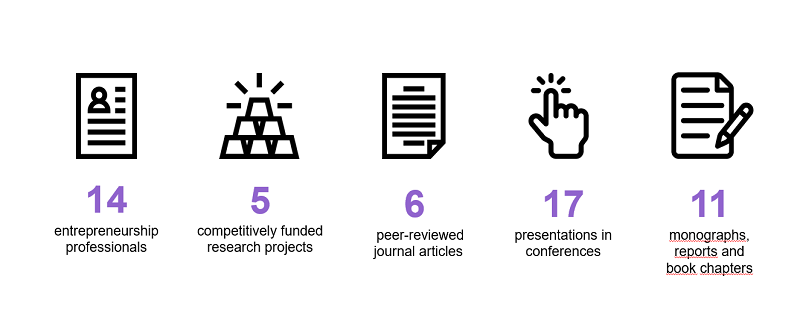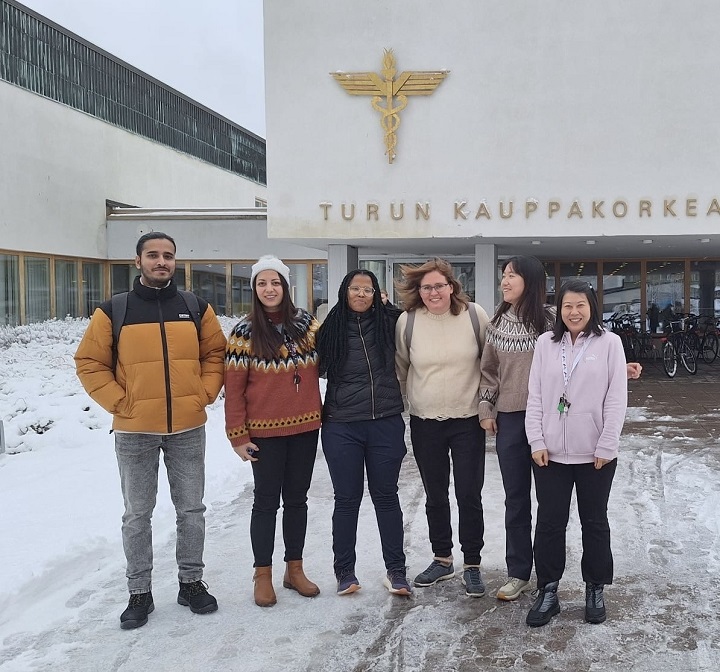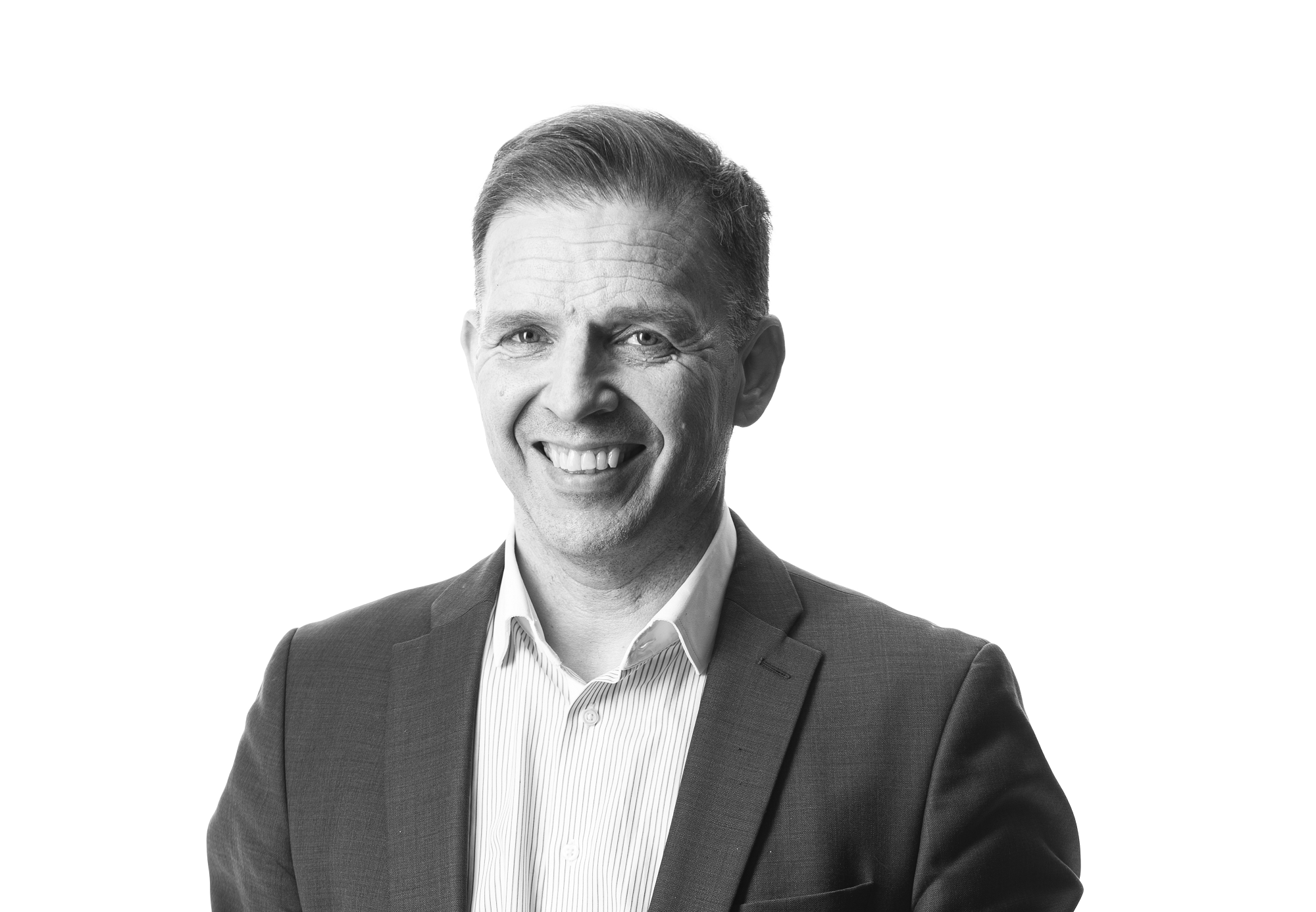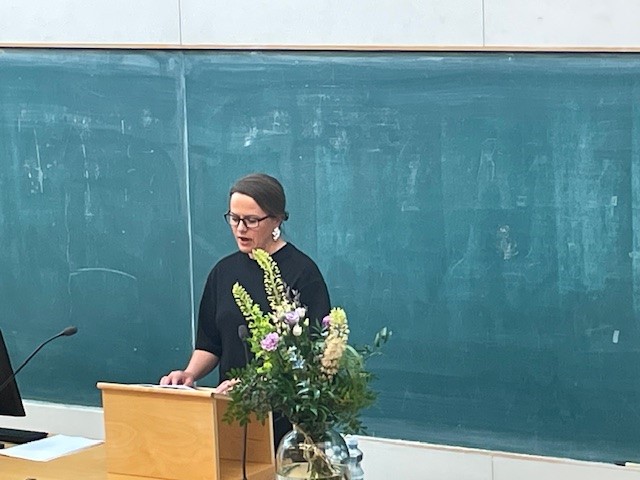
Highlights from our research projects in 2024
ECOCRIN (Sustainable and innovative creative ecosystems: Ecological Approach to Policy Innovation for Creative Sectors in Finland) is a research project funded by Business Finland and conducted in collaboration with Turku School of Economics Entrepreneurship Unit, Finland Futures Research Centre and Turku School of Economics Pori Unit. The growth and innovation potential of creative sectors is acknowledged in Finland and globally, but scarcely realised. Such creative potential remains undiscovered and this may jeopardize the economic sustainability of the scattered creative sectors. ECOCRIN contributes to innovation policy and related research. ECOCRIN addresses how policies could support ‘unleashing’ the potential of creative sectors for growth and innovation and suggests new ways of designing and implementing policies targeted at creative sectors. The systemic policy innovation of ECOCRIN is to integrate cultural and innovation policies to the needs of creative ecosystems. ECOCRIN creates an ecological approach to innovation policy for creative sectors that respects the planetary boundaries. Accordingly, ECOCRIN co-creates a Roadmap to implement the co-created ecological approach to support growth, innovation and internationalisation of creative sectors.
During 2024, ECOCRIN researchers focused on data collection and analysis. We built a comprehensive ecosystem mapping, which identified the key stakeholders that support sustainability and emergence of cultural and creative sectors. We identified the needs of creative ecosystems for achieving sustainable futures at the grassroots level. Further, we conducted a policy analysis to identify existing national, regional and local cultural and innovation policies and to examine how well they are aligned with the bottom-up needs of the creative ecosystems. Based on the results, we published three Fact Sheets concerning creative ecosystems mapping, creative ecosystem needs and policy analysis.
The research project will be conducted in 1.10.2023–30.9.2025. The research team in the Entrepreneurship Unit includes Professor Jarna Heinonen (jarna.heinonen@utu.fi), who is the Principal Investigator of the project, Senior Researcher Kaisa Hytönen (kaisa.hytonen@utu.fi), Senior Researcher Tommi Pukkinen (tommi.pukkinen@utu.fi) and Senior Research Fellow Pekka Stenholm (pekka.stenholm@utu.fi). More information on the project from the project website: https://sites.utu.fi/ecocrin/
The 3-year research project ‘(2024-2027) Creative economies’ value creation for Finland’s success and well-being’ (CREVELL) is funded by the Finnish Cultural Foundation based on a targeted call ‘Additional Million euro Funding to Science’ with a focus on the success and well-being of Finnish businesses and creative sectors. Although creative economies contribute considerable economic value to Finnish their widely acknowledged potential for growth and innovation is yet to be fully realized. To unlock the potential of the creative economies for Finland’s success and well-being the value creation in the creative economies and the trends shaping the creative economies’ future landscape need to be studied further. In investigating these, we wish to to reach beyond the economic value and examine different types of value the creative economies create. Therefore, the purpose of CREVELL is to investigate the current and future role of creative economies’ value creation in Finland’s success and well-being. To achieve this, we answer the following research questions:
- What are the various value creation models of creative economies?
- What future scenarios for Finland’s success and wellbeing emerge through value creation of creative economies?
In the CREVELL we will analyse a vast amount of existing interview and survey materials collected in our previous research projects (DISCE and ECOCRIN) on creative economies. Furthermore, we will conduct desk research and organise Future Scenario Workshops for Finland’s success and well-being. As a result CREVELL provides a deeper understanding of the multifaceted nature of creative economies and their influence on Finland’s success and well-being.
The study is conducted by a research team which has worked together in previous research projects investigating creative economies. In studying creative economies we integrate our competences in business studies, particularly entrepreneurship, and in education studies, futures studies and cultural heritage studies. The research team in the Entrepreneurship Unit includes Professor Jarna Heinonen (jarna.heinonen@utu.fi), who is the Principal Investigator of the project, Senior Researcher Kaisa Hytönen (kaisa.hytonen@utu.fi), Senior Researcher Tommi Pukkinen (tommi.pukkinen@utu.fi), Adjunct Professor, Senior Research Fellow Pekka Stenholm (pekka.stenholm@utu.fi), Professor Ulla Hytti (ulla.hytti@utu.fi), and Adjunct professor Katriina Siivonen (katriina.siivonen@utu.fi) from the Finland Futures Research Centre. In addition, two doctoral students in Entrepreneurship are engaged with the CREVELL to investigate value co-creation in music industry, particularly.
The two-year HiWe project came to an end in September 2024.
In the project we found out that there is an unsustainable contradiction in the Finnish labor market: there is a growing shortage of skilled labor, but international talents face difficulties in finding employment and integrating into Finnish society. Addressing the situation requires swift and long-term measures.
Work-based immigration to Finland has remained relatively active. In 2023, over 16,000 first work-based residence permits were granted. However, experts are concerned about whether this positive trend in work-based immigration will continue and how well Finland can retain the workers who move here. For example, applications for residence permits from specialists have been declining for several years. Based on research interviews, international talents appreciate the stability of Finnish society, the work-life balance, and high-quality public services, such as those for families. However, many feel that their expertise is not valued, as employment requires proficiency in the Finnish language and personal networks.
From the perspective of international talents, there is room for improvement in employment and entrepreneurship services. They see that the service system is fragmented, services are difficult to use, and service providers lack expertise in recognizing skills, guiding clients, and language skills. Current residence permit practices also influence international talents' views, making entrepreneurship less attractive as a career option.
The policy recommendations of the research project highlight several areas for change. Finland needs a long-term vision that clearly outlines the goals for immigration of international talent, the service promise for those moving to Finland, and a vision of an inclusive society. Creating and implementing this vision requires closer cooperation between public actors and active involvement of international talents in societal decision-making and the development of public services.
Additionally, public services must be developed so that international talents can interact with authorities in all situations, at least in English. Public services should also be more actively communicated to both international talents seeking work and companies recruiting them. Companies need positive examples, peer support, and incentives for hiring their first international employee. Increasing the attractiveness of entrepreneurship, in turn, requires more flexible residence permit practices.
In the two-year joint research project funded by Business Finland, the University of Eastern Finland and the University of Turku examined the experiences of highly educated international talents regarding living, working, and entrepreneurship in Finland. The study involved interviews with more than sixty international talents from various backgrounds and mapping policies and public services affecting them.
The key policy outcomes of the project were two Policy Briefs:
Policy Brief 2_How to promote the participation of highly skilled internationals_HIWE
The project team wrote several blog posts on the research process, findings and recommendations for action were also produced and published on the research project website (www.hiwe.fi).
Highly skilled internationals’ well-being and belonging in Finland – a narrative view - HIWE –
Checklist for preparing a public participation process on immigration issues -
HIWE policy recommendations in the light of policy analysis - do services meet the challenges faced by international talents? In Finnish: HIWE-hankkeen politiikkasuositukset politiikka-analyysin valossa – vastaavatko palvelut kansainvälisten osaajien kokemiin haasteisiin?
Two years of research on international talent in Finland: what did we do and what did we find? InFinnish: Kaksi vuotta tutkimusta kansainvälisistä osaajista Suomessa: mitä teimme ja löysimme?
What’s next for improving internationals’ employment, entrepreneurship, and inclusion?
In the 2024 round, the Foundation for Economic Education awarded 100.000 euros for a research project led by Professor Ulla Hytti. The HI-GEE project explores the role of highly educated immigrants as employees and entrepreneurs in promoting business growth. The funding was awarded from the focus area of ‘entrepreneurship, scaling and growth’. You can read about the project in Finnish from the Foundation for Economic Education’s website: https://www.lsr.fi/blog/kansainvaliset-osaajat-avaimena-pk-yritysten-kasvussa-ja-kansainvalistymisessa/
International Talent: The Key to SME Growth and Internationalization?
Finland’s future depends on tackling skill shortages—and international talent could be the game-changer. While many immigrants already work in the service sector, especially in big cities, their potential in driving Finland’s competitiveness remains largely unrealized.
Compared to other countries, Finnish small and medium-sized enterprises (SMEs) are not particularly international. There are relatively few SMEs in the export sector, and many businesses struggle to scale beyond national borders. But what if hiring international talent could change that? With their diverse expertise, global networks, and fresh perspectives, they could be the missing puzzle piece for growth and internationalization.
Every year, thousands of international students graduate from Finnish universities and universities of applied sciences. Many of them dream of staying in Finland, offering their skills and building their lives here. But the reality often tells a different story—finding a job is challenging. Many talented graduates end up leaving simply because they can’t secure employment.
For those who do stay, entrepreneurship is an increasingly popular path. Yet, immigrant entrepreneurship is often understood to be only small-scale, survival-driven business activity rather than something that could lead to major economic impact. However, many immigrant entrepreneurs in Finland have already built growing, international companies—some have even sold their businesses to global investment firms.
What Our Research Aims to Uncover
Our research project seeks to shed light on the role of international talent in the growth and internationalization of Finnish SMEs—both as employees and as entrepreneurs.
We’re exploring key questions like:
- How do Finnish SMEs approach the recruitment of international talent?
- What are the biggest barriers for immigrant professionals entering the workforce?
- What challenges do immigrant entrepreneurs face when trying to grow their businesses?
- How can international talent help Finnish SMEs expand into global markets?
This project builds on previous research on the experiences of international professionals in Finland and in Finnish labour markets (www.hiwe.fi). It’s also closely connected to ongoing studies on immigrant entrepreneurship within the unit.
Meet the Team Behind the Research
Professor Ulla Hytti is a principal investigator of the project, working alongside a dedicated team, including entrepreneurship researchers Satu Aaltonen, Tommi Pukkinen and Anna Elkina.
We believe that embracing international talent isn’t just about filling skill gaps—it’s about unlocking new opportunities for growth, innovation, and global success. Stay tuned as we dive deeper into this topic!
Transforming Entrepreneurship Education (TrEE) was officially finalised in December 2024. The main aim of project was to change direction and practice of entrepreneurship education in Europe. The TrEE project was about creating the resilience that is needed to deal with the major crises of our times, and the growing complexities of the societal challenges that come with them, both ecologically as well as socially. Entrepreneurship has the potential to contribute to solving as well as worsening some of such contemporary societal challenges. Concretely the project developed new pedagogical approaches and organising train-the-trainer activities in support of the core ideas. The project was funded by Erasmus+ Cooperation Partnership grant.
UTU Team (Ulla Hytti and Anna Elkina) co-created specifically two learning experiences for the project (both inspired by other colleagues at the Turku School of Economics). First is about developing Futures Consciousness in Entrepreneurship Education. Inspired by Dr Sanna Ahvenharju’s presentation and futures studies more broadly in a TrEE workshop in September 2023, we developed an educational experience to enable students to deconstruct ideas of existing products and generate entrepreneurial ideas that comply with collaboratively imagined hopeful futures. In this exercise, students are invited to develop futures consciousness, especially openness to alternatives, the capacity to see time (long-term) perspective, and agency beliefs and to question what do people really need given the challenges that society and the planet faces. We have tested the experience with our students in Social Value Creation course and with for example educators in a PDW in the RENT conference in 2024.
The second is focused on Regenerative Business Modelling as part of entrepreneurship education. This was inspired by Assistant Professor Anne Quarshie’s presentation at the Turku workshop in 2023, we wanted to develop understanding how entrepreneurial activity within organisations and businesses can generate positive impact and how to identify and evaluate opportunities for regenerative business in teams. Together with Senior Research Fellow Pekka Stenholm – the course leader for our Basic course ‘Entrepreneurial Business’ – a new tool “Regenerative Lean Canvas” was developed and tested with about 200 students in class. The whole course was divided into five teams where the students presented a regenerative business model of the case company in 2054 where it meets the customers’ needs and simultaneously generates a positive impact on the environment and the society. We have also tested the experience with educators in the TrEE Branching out conference in Stockholm in 2024.
The consortium consisted of representatives and educators from six European higher education institutions: Professor Karin Berglund, Associate Professor Jessica Lindbergh and Associate Professor Anna Wettermark from Stockholm Business School at Stockholm University, Professor Sarah Dodd from the University of Strathclyde, Professor Ulla Hytti from the University of Turku, Professor Sarah Jack from Lancaster University, Associate Professor Karen Verduijn and PhD Researcher Serxia Lage Arias from Vrije Universiteit Amsterdam, and Professor Mar Rodríguez Romero from the University of A Coruna.
Get access to the different learning experiences and for more information on the project from the project website: transformingee.eu and Professor Ulla Hytti (ulla.hytti@utu.fi) and Post-Doc Researcher Anna Elkina (anna.s.elkina@utu.fi).
Research visits
In 2024, we had the pleasure of hosting many international visitors. Yunhan Pan, a PhD researcher from Zhejiang University in China stayed with us for a whole year from November 2023 until November 2024. Yunhan conducted her PhD research in entrepreneurship education. PhD Researcher Sanele Matomela from the University of Pretoria in South Africa did research on entrepreneurial orientation at the individual level in social enterprises. Sanele visited us for 3 months from September to December 2024 under the Erasmus+ programme. Finally, Dr Joy Akahome, University lecturer in Entrepreneurship & Marketing at Federal University Otuoke, Bayelsa State, Nigeria visited us for 3 months at the end of 2024 under the Coimbra Scholarship Scheme. We at the entrepreneurship unit benefited tremendously from all of the visitors as they enriched our understanding of the different entrepreneurship research topics and broadened our understanding of the different cultures. Through the visitors we got to work in a truly international community: besides Finns, we had six other nationalities working in our unit in 2024!

International team of the Entrepreneurship unit (from left): Subrata Karmakar, Nasim Aryannejad, Sanele Matomela, Anna Elkina, Yunhan Pan and Qiujin Yu.

My first day on campus at the University of Pretoria
A wonderful visit to the University of Pretoria
For the past two weeks I had the pleasure of visiting Faculty of Economic and Management Sciences | University of Pretoria with the Erasmus+ Mobility Agreement. EMS is the first AACSB accredited business school in Africa offering also possibility for our institutions to share and exchange experiences in this regard as the reaccreditation process is taking place in my own institution Turku School of Economics just this Spring.
Despite their busy schedules I was honored to meet many leaders at the Faculty: the Dean Margaret Chitiga-Mabugu, Vice-Dean for Research Karin Barac, Head of Department of Business Management Prof Alex Antonites, and Dr Johan Vögel, the Institutional Collaborations Liaison at EMS Faculty.

A welcome lunch with HoD Prof Alex Antonites, Dr Johan Vögel and my hosts Associate Prof Alex Bignotti and Prof Sonali Das
As a basis for future collaborations, I gave presentation to share information on the Turku School of Economics at the University of Turku. During my visit I got to learn about interesting international collaboration projects in teaching of entrepreneurship that also spurred imagination what we might do together in the future.
The main part of my stay included carrying out a Qualitative Research Workshop for an enthusiastic and engaged group of both junior and senior scholars. The versatile experiences offered a genuine opportunity to interact, exchange experiences from doing qualitative research and to engage in practical experiments in qualitative analyses. Teaching (or rather co-creating knowledge of) qualitative research methods is one of my favourite topics – and with a good group like at UP, it is just fabulous. It was also very interesting to discuss face-to-face research plans and ideas with the PhD students – I could really sense that they were into research not only to participate in an academic debate but to make real social impact! Kudos to you all!

Part of the group participating the Qualitative Research Workshp
I visited the UP university incubator TuksNovation and learned about their incubation support and practices from the Centre Manager Mr. Phindile Tshabangu.
In order to meet and greet the EMS Faculty at large, I gave a presentation at a brownbag seminar on publishing qualitative research in high-impact journals, which was very well attended giving me an opportunity to share information on and promote the two journals where I’m currently most involved as an editor Entrepreneurship & Regional Development - An International Journal and Entrepreneurship Education & Pedagogy.
Last but not least, the visit provided an opportunity for ideas and continued collaboration with my lovely hosts Associate Professor Alex Bignotti and Professor Sonali Das without whom the visit would not have been possible and I would not have benefited from such an excellent programme and hospitability. It’s always a privilege to be invited for a dinner at one’s home, so special thanks to Prof Sonali Das and her family for an absolutely lovely evening with some wonderful South African cuisine (that kudu carpaccio is something to remember!)!
Good-bye for now and until next time!

A farewell lunch to set the plans for the next steps in our collaboration between UP and UTU!
New Professors in Practice in Entrepreneurship

Turku School of Economics appointed of Dr Kari Huhtala as Professor of Practice from 1 September 2024. The professorship continues the work of Eliisa Troberg as Professor of Practice specialising in cooperatives. Dr Huhtala's appointment will enhance the integration of cooperative principles in the School of Economics and hopefully also in the broader university curriculum.
A significant proportion of Finnish businesses operate as cooperatives or mutuals, often employing graduates of the University of Turku. This professorship aims to strengthen collaboration with the cooperative sector and to integrate practical perspectives on cooperative management and entrepreneurship into the academic environment.
Kari Huhtala has extensive and diverse experience and expertise in cooperatives, both as a leader and as a trustee in various positions of responsibility, as well as strong networks with key actors and stakeholders in the field. Dr Huhtala specialises in cooperative management and governance, with a focus on boards of directors. He has a strong background in small business consultancy and has worked as an advisor to start-ups. Dr Huhtala aims to contribute to the recognition of cooperatives as a viable business model and to act as a bridge between the university and various cooperative sectors.
The professorship has been established with donations from cooperative and mutual enterprises, including LocalTapiola, OP Turun seutu, OP Research Foundation, Turku Cooperative Society, and Pellervo ry.

Our former EiR (Entrepreneur in Residenc), Dr. Laura Strömberg started as a Professor of Practice in Entrepreneurship in Fall 2023. She hold her Inaugural lecture on the 15th of May, 2024. In her lecture she pondered why aren’t companies growing? The blaming finger often points to the Finnish entrepreneurial environment and its discouraging entrepreneurship policies. However, another perspective is also possible.
People are the drivers for company growth. Entrepreneurs themselves, owners, managers, and staff build the growth. No environment or policy action can ensure company growth if the people involved are not taking actions towards it. Growth doesn't just happen; it is built.
All growth actions require upfront investments, either in people's work time or money. Every action carries uncertainty with it. It’s impossible to be sure in advance that the investments will pay off. Simply put, when striving for growth, the entrepreneurial risks involved increase. The risk of failure is always present in entrepreneurship. All companies aim to manage the risks but still, the risks can materialize. In the worst case, this means significant personal losses for the entrepreneur. Very often, the sustainability of the entrepreneur's personal finances is strongly tied to the financial condition of their business.
Thus, growth is, in many ways, a personal matter and a personal choice for entrepreneurs. In many companies, this leads to a situation where growth is not necessarily even an objective. Life is good as it is. It is a major decision to choose the path of growth. Everyone has their freedom of choice, and we must accept these decisions as well. When examining company growth, it would be beneficial to add the entrepreneur’s personal perspective as a new element in the analysis. With this viewpoint, we can discover entirely new keys to unlocking the growth barriers of Finnish companies.
More information Laura Strömberg (laura.stromberg@utu.fi)
